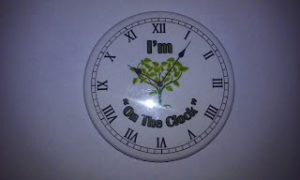Originally published on genealogyatheart.blogspot.com 24 Jan 2016
The Kinship Determination Project, aka KDP, has been looming as the last requirement I need to complete before submitting my portfolio for analysis to become a Certified Genealogist. I had started writing before I submitted my application but in November, a few weeks into being “on the clock,” I rewrote most of it. I changed from end notes to footnotes so the judges would have an easier time tracking citations, I wrote for many needed documents to give a more thorough look at the individuals’ lives. I added additional background data, too much, in fact, which I removed yesterday. Not to worry, it’s full of very interesting stories of the ancestors I’ll be focusing on later so I’m keeping it safe for another project. I think that it was good to start 3 generations prior to the 3 generations I’m focusing on as it gave me a better perspective of my main characters’ lives. We often become who we are because of the influence of our parents, grandparents and perhaps, our great grandparents.
Back in the day, meaning when submitting more than 3 families was permitted, my paper would have been fine but I’m trying to stick to the application guide. I had viewed Judy Russell’s webinar, “Kinship Determination: From Generation to Generation” which is free to view on the BCG site (click Skillbuilding, then click Webinars, then scroll down.) I loved Judy’s passion about her project! I share that passion when I start analyzing the evidence I’ve accumulated; the humanness behind the paper record is revealed and I begin to understand what occurred in their lives. Sometimes it’s something personal from my own life that I can relate to and sometimes, not. Makes me wonder how I would have reacted if the event had happened to me.
I just reread what I wrote about the first generation and I’ve very excited. I didn’t quite finish that first generation individual’s life but plan on doing so today after my company leaves. I want to get back into the story as there were two twists of compassion that I hadn’t known existed prior to analyzing the records. Although I can’t share much due to the requirement of submission, I will say that those tick marks on early census returns come alive when you attach a name to them. Pondering why you have extra marks is important – was their a child or two that died prior to being revealed in later censuses or other documents? Did other family members, an apprentice, an indentured servant, or a neighbor reside with the family the day the census was being enumerated? Did the family provide the enumerator misinformation, meaning the missing son was marked as a daughter or did the enumerator err? That’s a lot to think about and oftentimes, later records will help explain what was happening in the household.
The impact on a child when there’s a change in a household unit is important to consider. When community influences and national events occur there are additional effects. Such was the case with my generation 1. Now I think I better understand why the individual exemplified compassion, an interest in politics and education, and safety for future generations.
What really struck me was discovering that three of the siblings of the individual I’m focusing on relocated in the mid 19th century across the continent. I can’t imagine the anguish that must have been felt when communication was cut off. Strangely, I happened to visit 2 of the 3 places that the siblings had moved to this past year. I even blogged about one of the buildings in the town that I visited. Most likely, that building played an important role in the lives of the sibling’s children! It was such a strange feeling when the realization hit. I began to wonder how many times I’ve walked in the footsteps of my ancestors and never known it. It’s one thing to purposely go to a location you’ve discovered to visit. I’ve dragged my family on many vacations to visit homes where prior family members resided, ports they disembarked and battlefields where they were injured but I’ve never had the experience of visiting a place, feeling quite at home there, writing about it and then discovering months later that there was more of a connection then I was aware of at the time.
Today, I hope to make more headway on the KDP as next week, I’ll be traveling for business and won’t be able to work on it. My new goal is to try to get the draft complete by the end of February as I may be making a trip to obtain a few documents during my spring break.
I hope your week is filled with wonderful discoveries!

